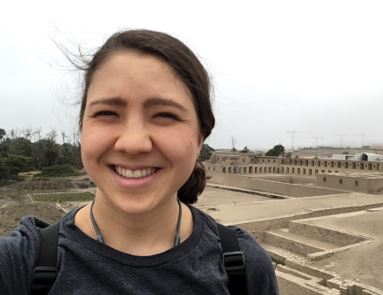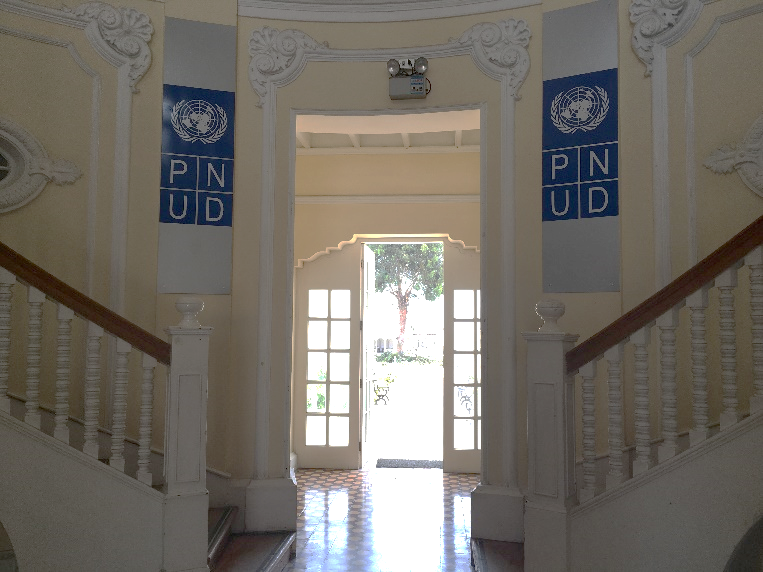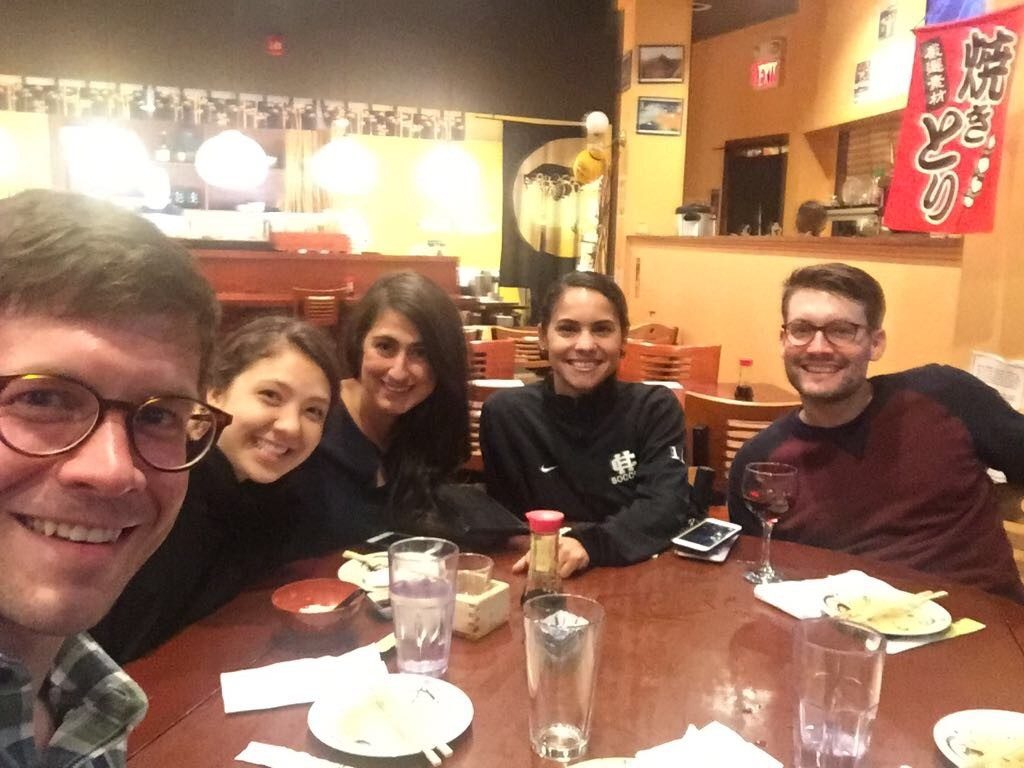First-Year Alumni: Sydney’s 2020 Hindsight
The first year after graduating can involve lots of movement for Fletcher alumni — leaving the comfort of campus, trying new jobs and cities, and even reevaluating career goals when job markets change suddenly. Today, we’ll hear from the first of several members of the Class of 2017 who are just wrapping up their first year post-Fletcher. Sydney-Johanna Stevns was a two-year friend of Admissions while she pursued her MALD. When we were corresponding about this blog post, I told her how clearly I could picture her sitting in the Admissions Office entryway, waiting for an interviewee or a visitor she would take for coffee. When not helping out Admissions, Sydney was active with the Center for International Environment and Resource Policy.
Like many of my classmates, I came to Fletcher planning to pursue a career in the U.S. Foreign Service. At the time I entered, I viewed the field of international environment and development work as being on the upswing, but just in time for me to graduate in 2017, the landscape changed. I decided to take a month after graduation to mentally regroup and think about a new career path while intensively studying Spanish in Xela, Guatemala. In this mountain town, I still wasn’t far from Fletcher. Nearby was a Fletcher friend who started a socially responsible shoe company in Antigua and another who was beginning her first tour as a political Foreign Service Officer in Guatemala City.
After my sunny month in Central America ended, I moved to Washington, DC to begin searching for work. I reached out to Fletcher alumni and other friends I’d made during my time at Fletcher to learn about their work and to understand opportunities within their fields. In the end, it was a Fletcher friend who saw a job posting on the Fletcher alumni job listserv, thought it would be a perfect fit, and forwarded it my way. After responding to the post, I got a call from my soon-to-be boss asking if I could come in on Monday. What started as a ten-day contract is now my full-time gig.

My role is Country Engagement Specialist with the NDC Partnership Support Unit (SU), hosted within World Resources Institute, focused on supporting Latin American countries while they amp up their action against climate change. In many ways, the work I am doing as a Specialist is what I hoped I would do someday as an Economic Foreign Service Officer and still very much feels like public service. On missions to Colombia, Honduras, and Peru, I have met with Ministries of Environment, Finance, Planning, Agriculture, Mines, and Energy, among others; representatives from the World Bank, UNDP, Inter-American Development Bank, GIZ, and other government embassies. In these meetings we identify areas to collaborate across ministries and across international cooperation actors. This is a central part of the NDC Partnership’s work to support developing countries in their efforts to implement their Nationally Determined Contributions (NDCs) — promises countries made as part of the Paris Agreement to adapt to and mitigate the effects of climate change.

As I’m writing this, I am sitting in Bonn, Germany, still jetlagged from my mission to Lima. While our team is headquartered in Washington, DC, I’m working with our team in Bonn on a temporary assignment to get to know them and our German cooperation partners better. We also have regional specialists based across the world. Together, our team of thirty people comes from over fifteen different countries, making it feel very similar to Fletcher.
No two weeks at work are the same. By nature of being effectively a “start-up” initiative, the NDC Partnership SU is constantly growing and improving its strategy. At a week’s notice I might have an in-country mission scheduled to provide support for the local government, or be writing our work program and budget, or drafting an agenda for a meeting with our implementing partners. Through this work I’m reminded of my time at Fletcher: my ability to convey a message convincingly gained from The Fletcher Forum; team management I learned working with FSIG; and ability to tell a compelling story out of a jumble of numbers that resulted from Impact Evaluation and Economic Policy Analysis classes.

As exciting and interesting as this job is, I’ve also learned that the jet-setting lifestyle is not the beauty I thought it would be. There are some airports that I know far too well and half the time I cannot justify unpacking my suitcase. But it provides insight into a world of international diplomacy outside of the Foreign Service and is always eased by the run-ins with Fletcher alumni and by the chance to learn about new cultures.
Although, during my time at Fletcher I was very focused on working for the federal government, in hindsight I see now that Fletcher’s flexible and interdisciplinary curriculum gave me the skills I needed to adapt when the job market changed. It’s also clear how the relationships I built during Fletcher were the ones that made finding work and building a new career path possible. The generosity of Fletcher students and alums, which I have continued to receive since graduating, makes me so grateful to have chosen Fletcher.